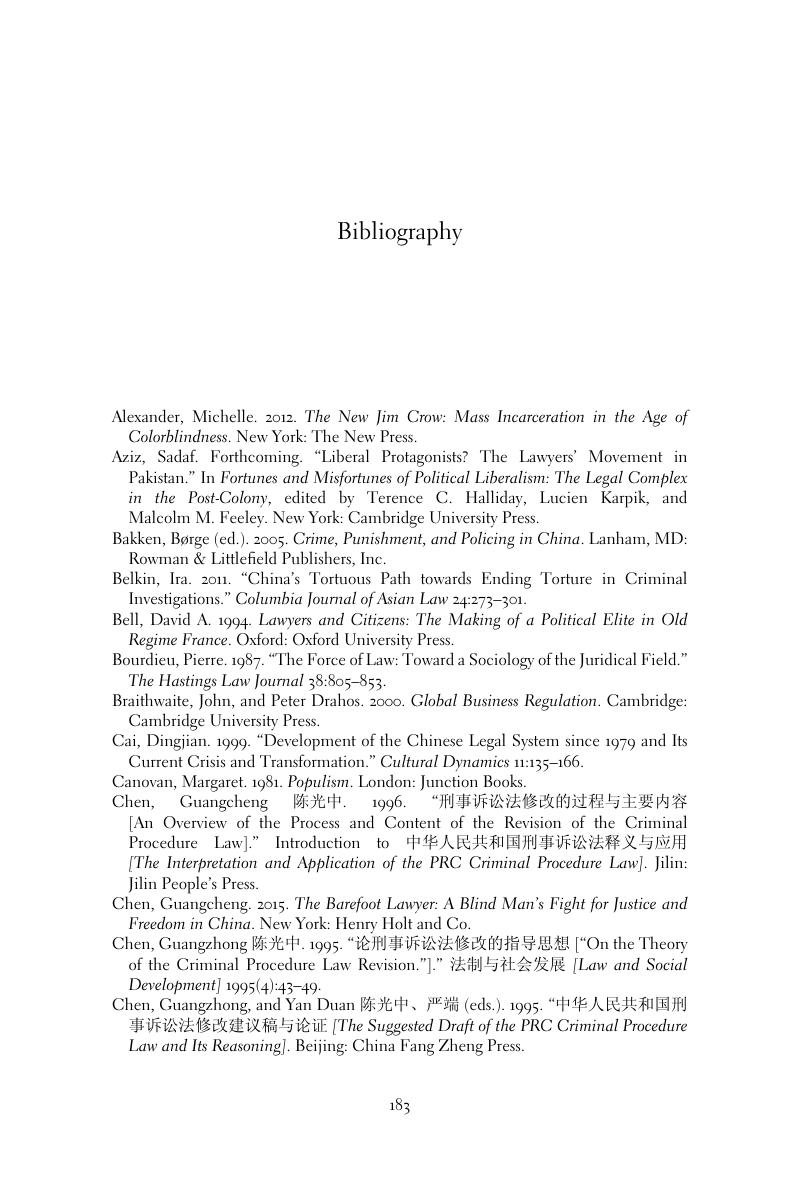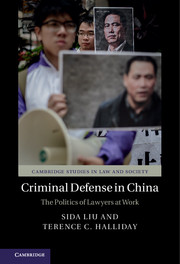Book contents
- Criminal Defense in ChinaThe Politics of Lawyers at Work
- Cambridge Studies in Law And Society
- Criminal Defense in China
- Copyright page
- Dedication
- Contents
- Tables and Figures
- Prologue
- Book part
- Glossary
- 1 The Politics of Criminal Defense Lawyers
- 2 Recursivity in Criminal Procedure Reforms
- 3 Difficulties and Danger in Lawyers’ Workplaces
- 4 Survival Strategies and Political Values
- 5 The Courage of Notable Activists
- 6 The Trial of Li Zhuang
- 7 Lawyer Activism through Online Networking
- 8 Between Reform and Repression
- Bibliography
- Index
- Books in the Series
- References
Bibliography
Published online by Cambridge University Press: 01 December 2016
- Criminal Defense in ChinaThe Politics of Lawyers at Work
- Cambridge Studies in Law And Society
- Criminal Defense in China
- Copyright page
- Dedication
- Contents
- Tables and Figures
- Prologue
- Book part
- Glossary
- 1 The Politics of Criminal Defense Lawyers
- 2 Recursivity in Criminal Procedure Reforms
- 3 Difficulties and Danger in Lawyers’ Workplaces
- 4 Survival Strategies and Political Values
- 5 The Courage of Notable Activists
- 6 The Trial of Li Zhuang
- 7 Lawyer Activism through Online Networking
- 8 Between Reform and Repression
- Bibliography
- Index
- Books in the Series
- References
Summary

- Type
- Chapter
- Information
- Criminal Defense in ChinaThe Politics of Lawyers at Work, pp. 183 - 191Publisher: Cambridge University PressPrint publication year: 2016



